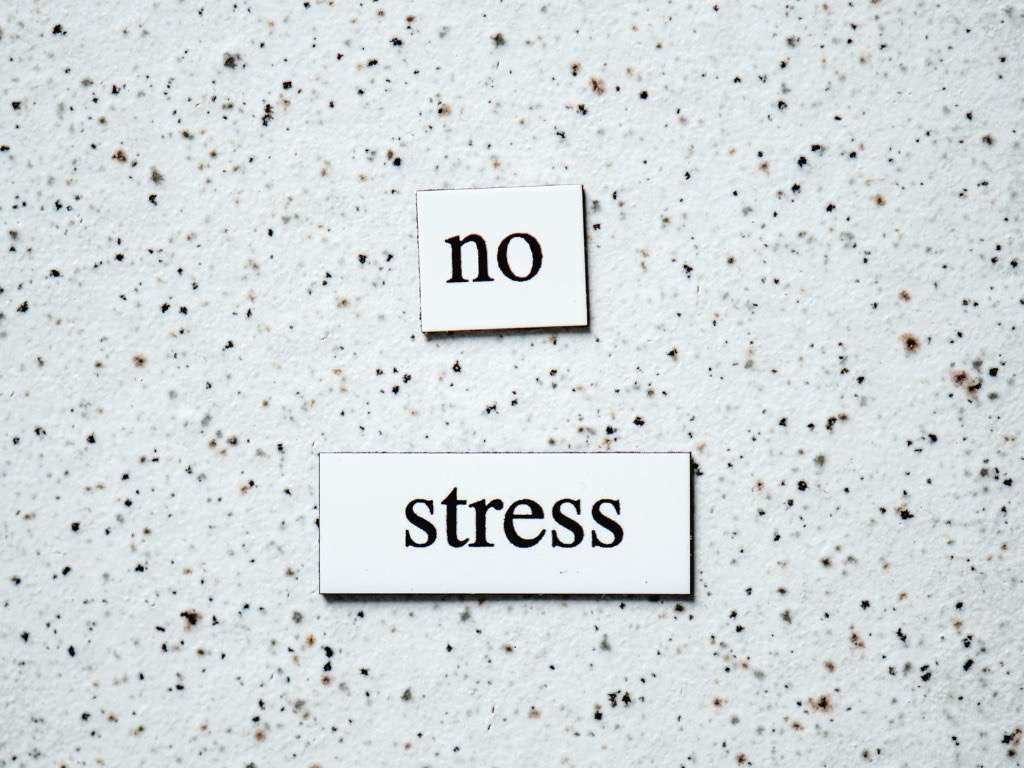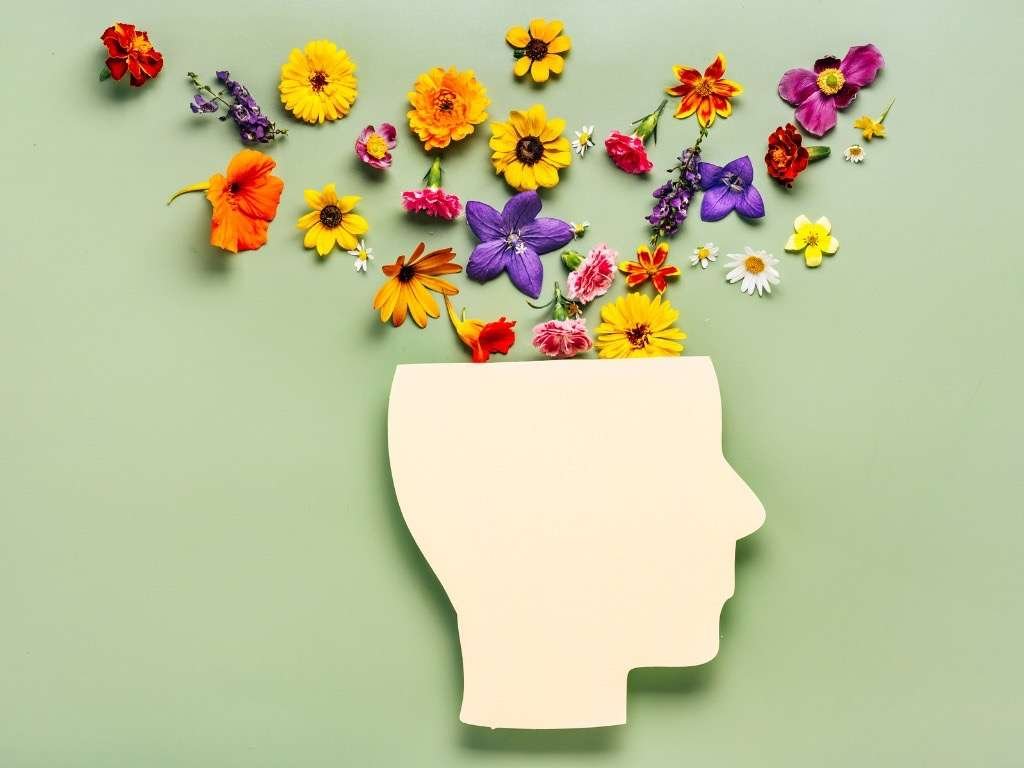What if the fastest Ways to Improve Mental Health are not grand life changes, but a few small choices you make today?
You face busy days, long screens, and pressure that never seems to end. This guide gives you clear mental health tips to reduce stress and anxiety without jargon. You will learn how to improve mental health naturally with practical steps that fit real life.
Each section turns research into action. You will find CDC-aligned activity goals, food ideas that steady mood, and daily mental health habits you can start in minutes. You will also see why chronic stress matters and when to seek care from a licensed professional.
These ideas support, not replace, treatment from your clinician. Used together, they help you build calm, energy, and focus—one habit at a time.
Key Takeaways
- Small, consistent steps can reduce stress and anxiety more than occasional big changes.
- Daily mental health habits like walking, breathing exercises, and mindful breaks add up fast.
- Balanced meals and key nutrients support mood and help improve mental health naturally.
- Less evening screen time can boost sleep and lower next-day stress.
- Know the difference between stress and a disorder, and reach out to a licensed professional when needed.
- Use this guide for clear, evidence-based mental health tips you can apply right away.
Understanding Stress and Your Mental Well-Being
Stress is like your body’s alarm system. It helps you meet deadlines or handle tough talks. But, too much stress can mess with sleep, focus, and mood. Learning mental health tips can help you manage stress and anxiety before it gets worse.
What stress is and how it differs from mental health disorders
Stress is a natural response to challenges you think are hard to handle. This can include work, money worries, or conflicts. It’s useful in short bursts but fades when the challenge is over.
Anxiety and depression are serious conditions with clear patterns and severity. They might need professional diagnosis and treatment. While everyday strategies can help with stress and anxiety, they can’t replace professional care for severe symptoms.
Common physical, emotional, and behavioral signs of stress
- Physical: headaches, tight shoulders, rapid heartbeat, stomach upset.
- Emotional: irritability, feeling overwhelmed, constant worry, low mood.
- Behavioral: poor focus, forgetfulness, sleep changes, appetite shifts, and increased use of alcohol, nicotine, or drugs.
Your risk of stress can change based on genetics, social support, and past experiences. Factors like race, gender, and income can also add to the stress. Recognizing these factors is a key step in improving your mental health.
Why chronic stress matters: links to heart disease, anxiety, and depression
Long-term stress keeps stress hormones high. This can raise blood pressure, disrupt sleep, and weaken immunity. Studies show it can lead to heart disease, anxiety, and depression.
Identify your stress triggers and connect physical signs to daily pressures. Use small mental health tips to change your routine. Simple actions can help reduce stress and protect your well-being.
| Sign or Factor | What You Might Notice | Why It Matters | Action-Oriented Mental Health Tips |
|---|---|---|---|
| Physical tension | Neck pain, jaw clenching, headaches | Signals chronic activation of stress response | Schedule stretch breaks; try heat packs; brief walks to reduce stress and anxiety |
| Sleep disruption | Trouble falling or staying asleep | Poor sleep worsens mood and focus | Set a wind-down time; dim screens; practice slow breathing |
| Cognitive overload | Forgetfulness, distractibility | Makes tasks feel larger than they are | Write a short priority list; use timed work blocks; note triggers |
| Emotional reactivity | Irritability, worry, mood swings | Can strain relationships and choices | Pause before replying; label the feeling; brief walk or water break |
| Unhealthy coping | More alcohol, nicotine, or drugs | Raises health risks and stress over time | Swap in a 5‑minute movement burst; reach out to a friend; plan a calming task |
| Systemic stressors | Bias, financial strain, workload | Compounds daily stress and health risk | Document stressors; seek support at work; use community resources; apply Ways to Improve Mental Health steps |

Move Your Body: Physical Activity to Reduce Stress and Anxiety
Moving your body is a great way to lower stress and anxiety. You don’t need fancy equipment or long workouts. Just start small, keep it simple, and make it a daily habit.
Evidence-backed benefits of aerobic exercise for perceived stress
Aerobic exercise can make you feel less stressed every day. In a study with 185 university students, doing cardio twice a week helped reduce stress and anxiety.
Regular exercise also boosts your energy, improves focus, and helps you sleep better. These benefits add up over time, helping you manage stress and anxiety without big changes.
How to start: CDC-aligned weekly goals and gentle options like walking
The Centers for Disease Control and Prevention suggest 150 minutes of moderate activity and two muscle-strengthening days a week. Break it down into 30 minutes, five days a week, or shorter sessions that add up.
If you’re new to exercise, start with walking, light cycling, or swimming. Pick activities you enjoy to stay motivated. Gentle yoga can also help improve your mental health while increasing mobility.
Daily mental health habits: micro-movements that fit busy schedules
Even small movements can help. Try a five-minute walk after calls, dance to a song, take the stairs, or do brief stretches. These small actions can be a big help, even on the busiest days.
Yoga and mindful breathing can lower cortisol, blood pressure, and heart rate. Studies show they increase GABA, a calming brain chemical. These daily habits can help you manage stress and anxiety and keep you moving forward.
| Activity | Time Goal | Intensity Guide | Mental Health Benefit | Easy Starter Tip |
|---|---|---|---|---|
| Brisk Walking | 30 min, 5 days/week | Can talk, not sing | Lowers perceived stress; lifts mood | Walk 10 minutes after each meal |
| Cycling (Leisure) | 20–30 min, 3–5 days/week | Light sweat, steady pace | Boosts energy and focus | Bike to nearby errands |
| Yoga (Gentle to Moderate) | 15–45 min, 3 days/week | Controlled breath, smooth flow | Reduces cortisol; calms nerves | Try a short morning routine |
| Bodyweight Strength | 2 days/week | Form-first, slow reps | Builds resilience and confidence | Do squats, pushes, and planks at home |
| Micro-Movements | 3–5 minutes, 4–6 times/day | Light to moderate effort | Breaks tension; steadies mood | Set a timer to stand and stretch |
Tip: Add movement to your daily routines—after coffee, between emails, or before dinner. This way, it becomes a natural part of your life and helps improve your mental health every week.
Eat for Resilience: A Balanced Diet to Improve Mental Health Naturally
Choosing the right foods can help your mental health. A 2022 study found that eating too much processed food and sugar can make you feel stressed. Focus on whole, colorful foods that fit your lifestyle and help your mental health.
Focus on patterns, not perfection. Mix in some treats with healthy meals. Drink plenty of water, eat foods rich in omega-3s, and limit alcohol. This helps keep your mood stable.
Whole foods that support mood and stress regulation
Make most of your meals with vegetables, fruits, beans, whole grains, and fatty fish. Add nuts, seeds, avocados, and dark greens like spinach and kale. These foods help your mood and stress levels.
Blueberries and citrus are great for flavor and antioxidants. They help keep your blood sugar steady and support your gut health. Both are important for your mental health.
Nutrients to watch: magnesium and B vitamins
Stress can lower magnesium levels, making you feel tense and sleep poorly. Dark greens, pumpkin seeds, almonds, black beans, and quinoa are good sources. Always talk to a doctor before taking supplements.
B vitamins, especially B6, B9, and B12, are key for energy and brain function. Find them in eggs, dairy, fish, leafy greens, beans, and fortified grains. Keeping these nutrients balanced is crucial for your mental health.
Simple meal ideas that help stabilize energy and mood
- Chicken and squash bake with rosemary, olive oil, and a side of steamed kale.
- Green bean salad with quinoa, feta, cherry tomatoes, and a lemon-tahini dressing.
- Tomato, orzo, and white bean soup finished with baby spinach and extra-virgin olive oil.
- Summer roll bowls: brown rice, shrimp or tofu, shredded carrots, cucumber, mint, and a peanut-lime sauce.
- Superfood shake: spinach, blueberries, Greek yogurt, flaxseed, and a splash of milk.
These meals are easy to make and use familiar flavors. Mix up your meals, include different colors, and eat omega-3 fish twice a week. This helps improve your mental health naturally and keeps cooking simple.
Always have water with you, snack on apples with peanut butter, and choose whole foods for dessert. Small changes can make a big difference in your mental health.
Minimize Screen Time to Support Sleep and Calm

Scrolling to relax might actually keep you awake. Blue light from screens can delay melatonin, making it tough to sleep. By protecting your nights, you can reduce stress and wake up feeling better.
Make a one-hour buffer before bed. Turn your phone to Do Not Disturb and put it in another room. Choose a book, a warm shower, or soft music on Spotify. These habits help your body relax and get the rest it needs.
Social apps can keep you comparing and refreshing all night. Cut down on notifications from Instagram, TikTok, and X. Follow only accounts that inform or inspire you. This simple change can help you feel more balanced.
Put away bright screens after sunset. If you must use a device, lower the brightness and use Night Shift or Android’s Night Light. Use an alarm clock instead of your phone. These habits make bedtime calm and predictable.
Try a short, device-free wind-down. Five minutes of stretching, a brief prayer, or box breathing can calm your mind. Add dim lights and a cup of herbal tea to relax without forcing it.
- 30–60 minutes screen-free: read, journal, or listen to calm playlists.
- Disable autoplay: stop endless episodes and late-night scrolls.
- Use grayscale at night: make apps less tempting to tap.
- Charge outside the bedroom: remove the cue to check.
| Evening Habit | Why It Helps | How to Start Tonight |
|---|---|---|
| One-hour digital curfew | Lowers arousal and supports melatonin release | Set an alarm and place devices in the kitchen |
| Grayscale + Do Not Disturb | Reduces visual pull and alert interruptions | Enable in Settings and schedule from 8 p.m. |
| Paper book or audiobook | Gentle focus without blue light | Keep a paperback or download from Audible |
| Low-light environment | Signals nighttime to your brain | Use warm bulbs or a bedside lamp |
| Bedside alarm clock | Keeps phone out of reach | Set a Philips or Sony clock and charge phone elsewhere |
Practice Self-C Care and Mindfulness
Small daily changes can help reduce stress. Find routines that fit your life and feel good. These tips help you build healthy habits naturally.
Simple self-care ideas you can do today
Begin with a small act. Take a 10-minute walk, read a chapter, or enjoy a warm bath. Light a candle, stretch, or cook a colorful meal.
Plan a massage or spend 15 minutes on a hobby. Gentle yoga and calming diffusers are great for unwinding. These habits improve your mental health naturally.
Mindfulness, meditation, and MBCT for stress reduction
Mindfulness helps you notice thoughts without judgment. Try a five-minute body scan or a brief loving-kindness practice. Short sessions can boost mood and focus.
Meditation apps like Calm and Headspace guide you. Mindfulness-based cognitive therapy (MBCT) combines awareness with tools for worry. Holding space for yourself reduces stress and supports healthy habits.
Deep breathing techniques to calm your nervous system
Use breath to calm before meetings or when stressed. Diaphragmatic breathing slows your heart and relaxes muscles.
- Box breathing: Inhale 4, hold 4, exhale 4, hold 4. Repeat for 1–3 minutes.
- Diaphragmatic breathing: Inhale through the nose so your belly rises, exhale slowly through pursed lips.
- Alternate nostril breathing: Breathe in through one nostril, switch, and breathe out through the other, then reverse.
These methods are easy to use anywhere. Daily practices like these improve mental health naturally and build resilience.
| Practice | When to Use | How It Helps | Starter Step |
|---|---|---|---|
| Walk Outside | Midday slump or after work | Boosts mood and reduces muscle tension | Set a 10-minute timer and loop your block |
| Mindful Pause | Before email or meetings | Centers attention and curbs reactivity | Close your eyes and notice five breaths |
| MBCT Exercise | When rumination starts | Breaks worry loops with awareness and CBT tools | Label a thought “thinking,” then shift to the breath |
| Diaphragmatic Breathing | During stress spikes | Slows heart rate and calms the nervous system | Inhale 4, exhale 6 for 2 minutes |
| Evening Stretch | Pre-bed routine | Releases tightness and signals wind-down | Hold three gentle poses for 30 seconds each |
| Healthy Meal Prep | Sunday or slow evening | Stabilizes energy and mood for the week | Batch-cook grains, proteins, and veggies |
Strengthen Social Connections and Set Healthy Boundaries
Strong ties are key to better mental health. Spending time with loved ones makes you feel safe. Regular, short chats build trust better than long, rare ones.
Start by reaching out to those nearby. Invite a neighbor for coffee or call a sibling. Even a brief walk with a coworker can help. Face-to-face interactions ease tension more than texts.
If you don’t have many friends, try joining a local group. Running clubs, soccer groups, choirs, or volunteering can help. These activities support your sense of belonging and reduce stress without costing much.
Setting boundaries is crucial. You can say no to extra work or ask friends to text before visiting. Choose small gatherings to avoid feeling overwhelmed. Clear limits help prevent burnout.
Script ideas you can use:
- “I can’t do Thursday, but I’m free for a 20-minute call on Saturday.”
- “I’m happy to help for one hour today, then I’ll need to log off.”
- “I prefer small groups. Can we meet one-on-one instead?”
For ongoing stress, use a layered approach. Combine social time with simple plans like walks or meals. If stress doesn’t improve, talk to a therapist or your doctor for help.
| Situation | Boundary to Set | Connection Action | Expected Benefit |
|---|---|---|---|
| Back-to-back invitations | Limit to one event per day | Plan a short coffee instead of a long party | Lower overload to reduce stress and anxiety |
| Late-night messages | Quiet hours after 9 p.m. | Send a morning reply window | More sleep, steadier mood |
| Feeling isolated after work | Protect two evenings weekly for social time | Join a YMCA class or a local book club | Reliable support, stronger Ways to Improve Mental Health |
| Draining group chats | Mute threads during focus blocks | Schedule a weekly call with one close friend | Deeper bonds, fewer alerts |
| Family drop-ins | Ask for a text before visits | Set a regular Sunday lunch | Predictable contact, calmer home |

Ways to Improve Mental Health
You can naturally boost your mental health by making small changes each day. These habits build your resilience without needing a big change. Start with small steps, see what works, and do it again.
Journaling to process emotions and ease anxiety
Try writing for 10 minutes about what you feel, not what you think you should. This turns vague worries into clear thoughts. Use guided journals from Moleskine or Papier to get started.
Ask yourself: What drained me today? What gave me energy? Over time, you’ll notice patterns and make better choices. Journaling is a simple way to keep your mental health habits on track.
Limiting caffeine for steadier mood and better sleep
Too much caffeine can increase stress and mess with your sleep. Try to stay under 400 mg a day, which is about four to five cups of coffee. If you feel too jittery, skip the afternoon coffee and see how your evening improves.
Try matcha, chai, or a chai smoothie instead. For a coffee fix without the crash, try half-caf options from Peet’s or Starbucks. These changes are easy to make and help improve your mental health.
Spending time in nature and with pets for oxytocin boosts
Just 10 minutes outside can change your mood and body signals. Visit a park, arboretum, or botanical garden, even in the city. See how your breathing, tension, and focus change with a green break.
Time with pets also boosts oxytocin and lowers cortisol. Simple play, walks, or cuddles can help. Brands like Kong or Chewy offer fun toys that add to the joy. These choices are easy to make and improve your mental health naturally.
Create Structure: Routines, Priorities, and Beating Procrastination
You can build calm with small, steady steps. Simple anchors like regular meals, movement, and wind-down time help. These tips help you reduce stress and anxiety without changing your life too much.
Using routines to regain control and clarity
Set a wake time and a pre-sleep ritual, even if your schedule changes. Keep a screen-free buffer before bed and a short morning check-in. Adjust your anchors as needed for clarity, not rigidity.
Stack habits to make them stick. Take a 10-minute walk after lunch. Write tomorrow’s top task after shutting your laptop. These cues help keep your day predictable and reduce stress.
Prioritization strategies and realistic to-do lists
Start with three must-dos, then add nice-to-dos. Break work into steps you can finish in 15–30 minutes. Delegate tasks and say no when your plate is full. These tips keep your focus on what matters now.
Use time blocks. Protect deep work, meals, and rest like appointments. A list that fits your day is kinder than a wish list. Writing a task down can lower tension right away.
Understanding procrastination and how to break the cycle
Procrastination raises stress and can disrupt sleep and performance. Research in medical students has linked delays with higher stress levels. Name the feeling—fear, boredom, or doubt—and choose the smallest next step that moves you forward.
Try the 5-minute start, set a clear deadline, and track progress, not perfection. Pair structure with self-kindness so you do not avoid hard tasks. These tips help you reduce stress and anxiety while building momentum.
| Challenge | First Small Step | Anchor Routine | Outcome You’ll Notice |
|---|---|---|---|
| Chaotic evenings | Set a 30-minute screen-free wind-down | Brush teeth, stretch, lights dim | Easier sleep, lower evening tension |
| Endless to-do list | Choose three must-dos | Plan tomorrow in 5 minutes at day’s end | Clear focus, fewer stalled starts |
| Task avoidance | Start with 5 minutes | Timer + first micro-step | Reduced dread, faster momentum |
| Irregular schedule | Protect two daily anchors | Set wake time and wind-down window | More control, steadier energy |
Consider Supplements Carefully and Seek Professional Help When Needed
Improving mental health naturally is possible, but supplements shouldn’t be seen as a quick fix. Magnesium, omega-3s, and B vitamins can help with mood and stress response. Low magnesium levels can be a sign of chronic stress, and research shows magnesium can help manage stress.
Before starting any new supplements, always talk to your doctor or a licensed pharmacist. They can advise on dosage, potential interactions, and how your health history affects what’s safe for you. Pregnancy, kidney problems, or certain medications can change what’s safe.
Focus on lifestyle changes first. Regular exercise, a balanced diet, enough sleep, mindfulness, staying connected, and setting clear boundaries are key. Supplements should be part of a larger plan, not the main solution.
If stress or anxiety doesn’t improve, seek professional help. Cognitive Behavioral Therapy (CBT) and mindfulness-based approaches like MBCT are proven to help. Your primary care doctor can also help rule out medical causes and guide you further.
Support is available beyond healthcare. Community and voluntary groups can help with financial issues, job searches, caregiving, or relationship problems. Addressing these can naturally improve mental health by reducing daily stress.
If you are in immediate distress or crisis, call or text 988 to reach the Suicide & Crisis Lifeline for 24/7 support in the United States.
| Supplement | Potential Benefit | Typical Dietary Sources | Key Cautions | Best Use Case |
|---|---|---|---|---|
| Magnesium (citrate or glycinate) | Supports relaxation and stress response; may ease muscle tension | Leafy greens, nuts, seeds, whole grains | May interact with antibiotics; high doses can cause GI upset | When chronic stress and low intake are likely |
| Omega-3 (EPA/DHA) | Supports mood and inflammation balance | Salmon, sardines, trout; algal oil for plant-based | Can affect bleeding risk; check with your clinician | When fish intake is low and mood support is desired |
| B-Complex (with B6, B9, B12) | Helps energy metabolism and neurotransmitter synthesis | Legumes, eggs, fortified grains, leafy greens | May mask B12 deficiency if folate is high; testing may be needed | When diet is limited or fatigue and low mood persist |
| L-Theanine | Promotes calm alertness without sedation | Green tea | May lower blood pressure; monitor if on related meds | When you want focus with fewer jitters |
| Vitamin D | Supports brain and immune health | Sunlight exposure, fortified dairy, fatty fish | High doses can raise calcium; get levels checked | When you have limited sun or a known deficiency |
Conclusion
Chronic stress can harm your body and mind, but small steps help. Moving often, eating whole foods, and avoiding late-night screens can protect your sleep and mood. These habits are practical ways to improve your mental health and reduce stress and anxiety.
Start a simple self-care routine you can follow. Try short mindfulness exercises, deep breathing, and quick walks to calm your nerves. Also, strengthen your social connections, set clear boundaries, and use tools like journaling and spending time outside with pets.
Make routines that work for your week. Focus on what’s important, make honest to-do lists, and tackle procrastination with small steps. If you consider supplements, talk to a licensed clinician first. And don’t hesitate to seek professional help if you’re struggling.
By linking these habits together, you build lasting resilience. You’ll sleep better, think more clearly, and feel more in control. This is the way to sustainable mental health and less stress and anxiety in your daily life.
FAQ
What are the best ways to improve mental health and reduce stress quickly?
Start with small, daily habits. Move for 10–20 minutes, practice deep breathing, and limit evening screen time. Eat whole foods, hydrate, and set one clear priority. Connect with someone you trust. These steps help reduce stress and anxiety within days and build resilience over time.
How is everyday stress different from anxiety or depression?
Everyday stress is a response to pressures like deadlines or money worries and often eases when the stressor passes. Anxiety and depression are mental health disorders with persistent symptoms that disrupt daily life. If worry, low mood, or sleep and appetite changes last most days for two weeks or more, seek professional care.
What physical and emotional signs suggest stress is affecting your health?
Common signs include headaches, muscle tension, racing heartbeat, stomach upset, brain fog, irritability, mood swings, sleep changes, and stress eating. You may notice constant worry, forgetfulness, or relying on alcohol or nicotine to cope. Track patterns to link symptoms to triggers.
Why does chronic stress increase the risk of heart disease, anxiety disorders, and depression?
Prolonged activation of stress hormones such as cortisol and adrenaline raises blood pressure, disrupts sleep, and alters immune and brain function. Over time, this can strain your cardiovascular system and affect mood-regulating neurotransmitters, increasing risk for these conditions.
How much exercise should you get each week to lower perceived stress?
The CDC recommends 150 minutes of moderate activity per week plus two days of muscle-strengthening. Even two aerobic sessions weekly can lower perceived stress. If you’re new to exercise, start with brisk walking, cycling, or swimming and build gradually.
What are simple micro-movements you can add to busy days?
Take the stairs, do 5-minute walk breaks, stretch between meetings, try kitchen dance breaks, or do bodyweight moves like squats and wall push-ups. Short bursts spread through the day help regulate stress and energy.
Which foods help improve mental health naturally?
Emphasize vegetables, fruits, beans and lentils, whole grains, nuts, seeds, olive oil, and fatty fish like salmon or sardines for omega-3s. These nutrient-dense foods support mood, stabilize blood sugar, and reduce inflammation linked to stress.
What nutrients matter most for stress regulation?
Magnesium and B vitamins are key. Chronic stress may deplete magnesium, and low B vitamins can affect energy and mood. Aim for leafy greens, legumes, nuts, seeds, eggs, and whole grains. Discuss supplements with your clinician before starting.
Can you get simple meal ideas that steady energy and mood?
Try a chicken and squash bake; green bean, quinoa, and feta salad; tomato, orzo, and white bean soup; summer roll bowls; or a superfood smoothie with spinach, berries, and yogurt. Pair protein, fiber, and healthy fats at each meal.
How does reducing screen time help your mental health?
Heavy smartphone use is linked with higher stress and poorer sleep. Create a 60-minute screen buffer before bed, charge your phone outside the bedroom, and limit social media scrolling. Better sleep improves mood, focus, and coping.
What self-care habits lower stress fast?
Take a brief walk outdoors, stretch, run a warm bath, read, or prepare a nourishing meal. Small acts done consistently—paired with rest and hydration—can reduce perceived stress and improve your quality of life.
Do mindfulness, meditation, and MBCT really work?
Yes. Mindfulness and meditation lower stress, improve attention, and can help anxiety and low mood. Mindfulness-Based Cognitive Therapy combines mindfulness and CBT skills. Apps like Calm and Headspace offer simple guided sessions.
Which breathing techniques calm your nervous system?
Diaphragmatic breathing, box breathing (4-4-4-4), and alternate nostril breathing can slow your heart rate and lower arousal. Practice for 2–5 minutes before bed, in long lines, or ahead of stressful meetings.
How can social support and boundaries reduce stress and anxiety?
Supportive relationships buffer stress and improve coping. Prioritize face-to-face time, join a club or volunteer group, and schedule regular check-ins. Set boundaries by saying no to overload, limiting unscheduled visits, and protecting downtime.
What are practical ways to improve mental health every day?
Journal for 5–10 minutes, limit caffeine after noon, get sunlight exposure, and spend time in nature or with pets. These daily mental health habits reduce stress hormones, boost oxytocin, and promote steadier mood.
How much caffeine is too much for stress and sleep?
Keep intake under 400 mg per day—about 4 to 5 cups of brewed coffee. If you feel jittery, anxious, or have trouble sleeping, cut back and try lower-caffeine options like matcha or chai.
Can nature and pets really improve your mental health?
Yes. As little as 10 minutes in a natural setting can lower perceived stress. Positive contact with pets can raise oxytocin and lower cortisol, which may reduce blood pressure and heart rate.
How do routines and prioritization help you beat procrastination?
Routines provide structure and control. Use a short, realistic to-do list, set specific deadlines, and tackle one priority at a time. Break tasks into the next smallest step and pair effort with self-kindness to keep moving.
When should you consider supplements for stress?
Lifestyle changes come first: exercise, sleep, diet, and mindfulness. If you’re considering magnesium, B-complex, or omega-3s, talk with your doctor to check safety, dosage, and interactions. Supplements should fit your individual needs.
When is it time to seek professional help for stress, anxiety, or depression?
If stress feels overwhelming, lasts most days for two weeks or more, or you notice thoughts of self-harm, contact a licensed mental health professional. Evidence-based therapies like CBT and MBCT are effective. In the U.S., call or text 988 for immediate support.
What are effective ways to improve mental health naturally without medication?
Combine regular physical activity, mindfulness or MBCT, balanced meals rich in magnesium and B vitamins, reduced evening screen time, consistent sleep routines, social connection with clear boundaries, journaling, time in nature, and careful caffeine intake. This integrated approach helps reduce stress and anxiety and supports long-term well-being.






